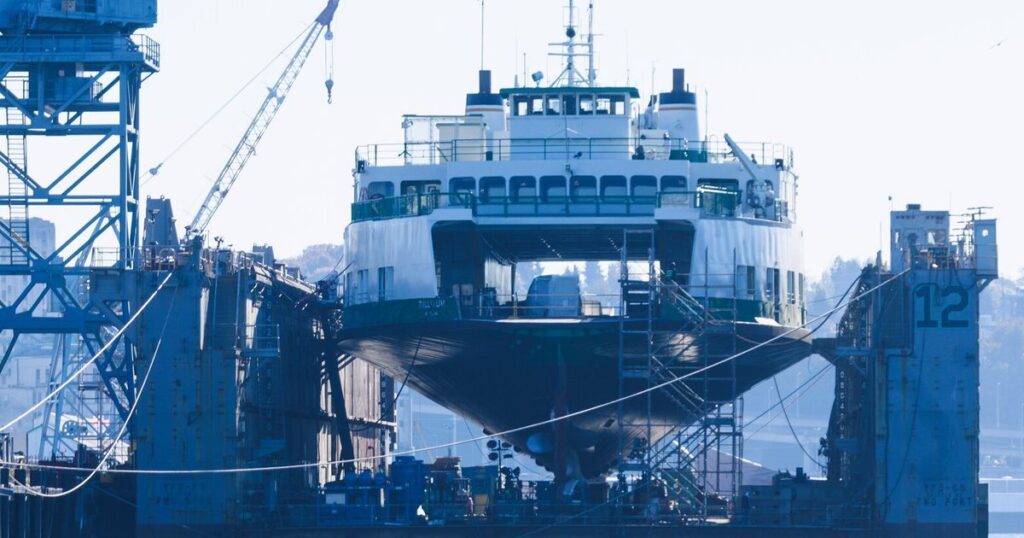[ad_1]
Success of any business relies on listening to customers. The same holds true for Washington’s state-run but beleaguered ferry system, the sole provider of 10 marine highways across the inland marine waters of Washington. The unheeded voices of ferry riders contributed to lasting consequences for a system now in atrophy, unable to fulfill the routes and schedules that were routine just a few years ago.
Gov. Jay Inslee and the Legislature finally have started listening to those customers again, making long-overdue investments in a badly depleted ferry fleet and an understaffed workforce. But when it comes to jockeying for dollars in the state’s entire transportation budget, how do officials keep the voices of its customers at the right volume in the future, to avoid a repeat of the current debacle?
For starters, don’t follow the agency leaders’ most recent example. Outgoing Ferries’ chief Patty Rubstello told an all-staff meeting in January that users who are a part of the system’s Ferry Advisory Committees would be part of the process to select her replacement. But WSF later backtracked, going without such critical input.
More than 1,000 sailings were canceled in the first quarter of the state’s fiscal year from July to October, the latest data available. That’s according to state Rep. Greg Nance, D-Bainbridge Island, who recently conducted his own district listening tour focusing on ferry troubles. The first-term lawmaker heard firsthand from riders about the hardships of missing work, school, medical appointments and more.
More than 1,000 sailings were canceled in the first quarter of the state’s fiscal year from July to October, the latest data available. That’s according to state Rep. Greg Nance, D-Bainbridge Island, who recently conducted his own district listening tour focusing on ferry troubles. The first-term lawmaker heard firsthand from riders about the hardships of missing work, school, medical appointments and more.
Nance crafted a bill, HB 2497, based on what he heard, that has garnered 28 bipartisan sponsors and is supported by numerous city and county elected officials in ferry-adjacent communities.
The bill would accomplish two tasks vital to the system’s long-term sustainability. First, it funds a study calculating the economic impact of the ferry system and the financial toll of service disruptions. Surprisingly, the state has never completed such an assessment. This editorial board supports this approach. The analysis will serve to remind lawmakers in all parts of Washington of the economic importance of these marine highways, while also bolstering the case for federal grants to help, at a time when infrastructure dollars are available.
Second, the bill creates a work group that brings together lawmakers, state transportation and labor leaders, and — most importantly — riders themselves to analyze how best to keep the ferry system on a smooth financial course into the future.
The Legislature, which is unveiling transportation budgets this week, should be commended for helping a chronically under-resourced system through continuing hard times. Funding for Kitsap Transit’s fast passenger ferries to Bremerton will continue; proposed for the first time this year is money to boost sailings by King County’s water taxi from Seattle to Vashon Island. Both will help offset the next four years of lost sailings by the state until replacement car ferries finally arrive.
But those are ultimately just a Band-Aid, with no promise ferries won’t again be forgotten within the priorities of the state Department of Transportation. Leaders’ commitment to savvy solutions and steady resources is the only way to keep WSF out of its current predicament. Lawmakers should pass Nance’s bill, and leaders should keep their ears tuned to ferry riders.
[ad_2]
Source link

